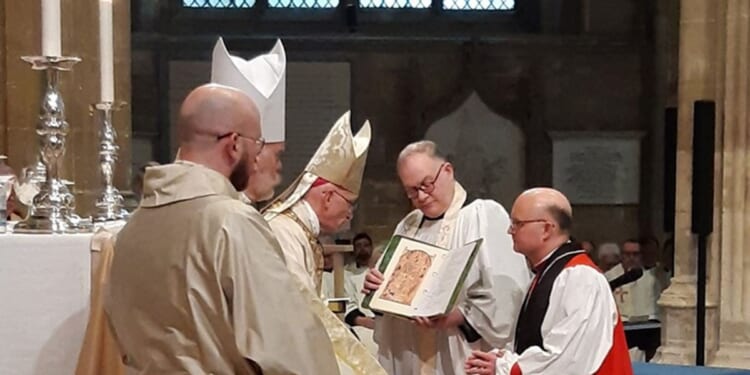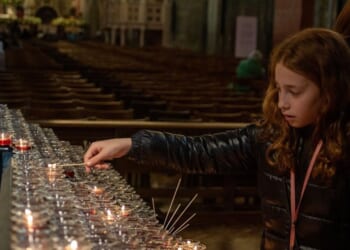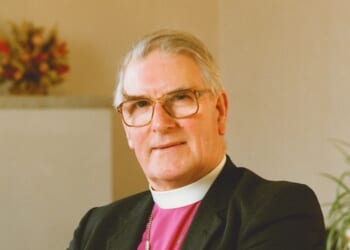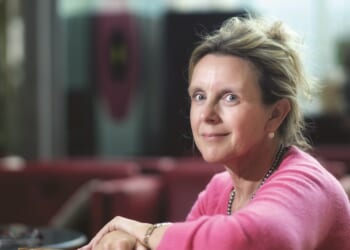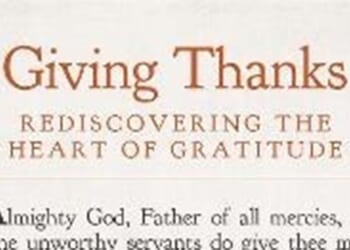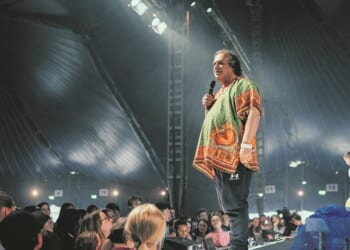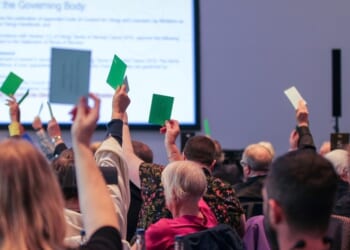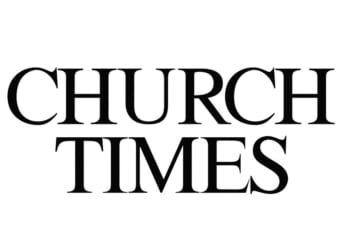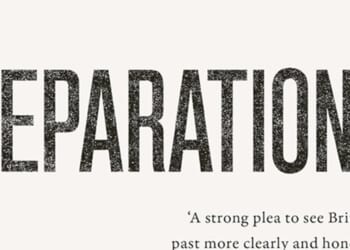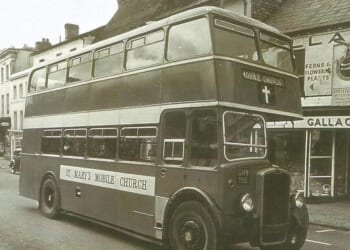MORE than a decade since the General Synod approved legislation enabling women to be bishops, the House of Bishops’ Declaration is at breaking point. The Declaration offered extended episcopal oversight to those who, on grounds of theological conviction, remained unable to receive the ministry of women bishops.
Concerns come from two directions: traditionalist Catholics, such as the Bishop of Blackburn, the Rt Revd Philip North, alongside conservative Evangelicals, in one direction, and Women and the Church (WATCH) in the other. How these concerns are navigated by the Church will establish or destroy a culture of trust and integrity in times of deep theological disagreement.
Traditionalist Catholics and conservative Evangelicals feel under-served and sidelined by the structures that are intended to enable their continued flourishing. On the retirement of the Bishop of Wakefield, the Rt Revd Tony Robinson, his workload was added to that of the Bishop of Beverley, the Rt Revd Stephen Race.
As the Provincial Episcopal Visitor for the Northern Province, Bishop Race now covers 140 parishes in 11 dioceses: more than 11,890 square miles. This ministry is in contrast with the diocesan average of 116 parishes across 482 square miles. Bishop North has raised the capacity challenge that this has caused in the Northern Province, and the impact on both Bishop Race and those under his care. Bishop North argues that there is a lack of the “broadly comparable and consistent arrangements” that the 2014 Declaration guaranteed for resolution parishes.
In response to a letter sent by Bishop North in February, and a letter from the chair of the Dioceses Commission, Dame Caroline Spelman, sent in March, regarding the unsustainability of the ministry to conservative Evangelical parishes of the Bishop of Ebbsfleet, the Rt Revd Rob Munro, an independent review was conducted by Maggie Swinson (News, 26 September).
She found that the Living in Love and Faith (LLF) process, as well as the Makin report, had led to conservative Evangelical parishes’ requiring increased pastoral support and guidance. She also confirmed the disparity between pastoral provision in the Northern and Southern Provinces, and recommended increased episcopal and administrative support for Bishop Race’s ministry.
SHOULD action be taken over the Swinson review’s recommendations, Bishop North’s concerns will be addressed, but criticism of the implementation of the Declaration is growing from another direction, spearheaded by WATCH’s “Not Equal Yet” campaign to dismantle the 2014 declaration and its Five Guiding Principles (News, 4 April).
WATCH argues that the current arrangements, with an exemption to the Equality Act 2010, are unjust in their treatment of female clergy, untrue to the gospel in their interpretation of scripture, and unsafe in creating an environment in which women are “expected to accept and cope with discrimination”.
There is a lesson here for those involved in any settlement regarding the Prayers of Love and Faith. The Bishop of Croydon, Dr Rosemarie Mallett, who was a member of the steering committee that drafted the 2014 legislation, said at WATCH’s “Not Equal Yet Conference” in March: ‘“I think in honesty we also thought that, as society changed and as views became more open-minded among growing numbers of younger men and women, the culture of the Church would change like the culture of the wider society.”
By its own admission, WATCH wants the House of Bishops to go back on its word by rejecting the assurances given to both conservative Evangelicals and traditionalist Catholics. The lesson is not to assume that cultural progression will always be matched by the Church, or that traditionalist theological perspectives will slowly be replaced by more enlightened, modern people who can embrace the progressive theological change.
There are many ways in which the 2014 legislation opening the episcopate to women is substandard: it could have been better formed with clarity around ordination services; but the keenness of progressives to proceed at any cost, especially after previous legislation fell in the Synod, means that they appear to have not fully comprehended the long-term consequences of what was agreed. It is not that they were duped, but, instead, that their short-term goals clouded their vision of the long-term impact.
Nevertheless, however much progressives, as exemplified by WATCH, regret the content of the 2014 Declaration, within the current context of the LLF process, dismantling the legislation would be catastrophic, eroding what little trust exists between the factions of the debate.
THE House of Bishop’s recent announcement about LLF (News, 17 October) has probably not increased trust. For conservatives, trust is low because of how long it is taking to obtain an acknowledgement regarding the challenging legalities of the introduction of stand-alone services of blessing for same-sex couples, or of enabling clergy to enter into same-sex civil marriages.
For many progressives, trust has been lost as the House of Bishops has failed to deliver in public the “radical inclusion” that some bishops had privately assured them could be achieved. With trust so low, to have fruitful ongoing discussions regarding LLF, there must be confidence that all parties are acting in good faith.
This requires honesty, by not over-promising, by being transparent regarding legal advice, and by being committed to settlements not merely as a means of placating the losing side in the short term. It requires “yes” to mean “yes”, and “no” to mean “no”. Without this trust, what hope is there for the future of the Church of England?
The Revd Dr Katie Stock is Priest-in-Charge of Christ Church, Summerfield, in Birmingham diocese. Her doctoral research was about traditionalist Anglo-Catholic priests under the Bishop of Fulham.

